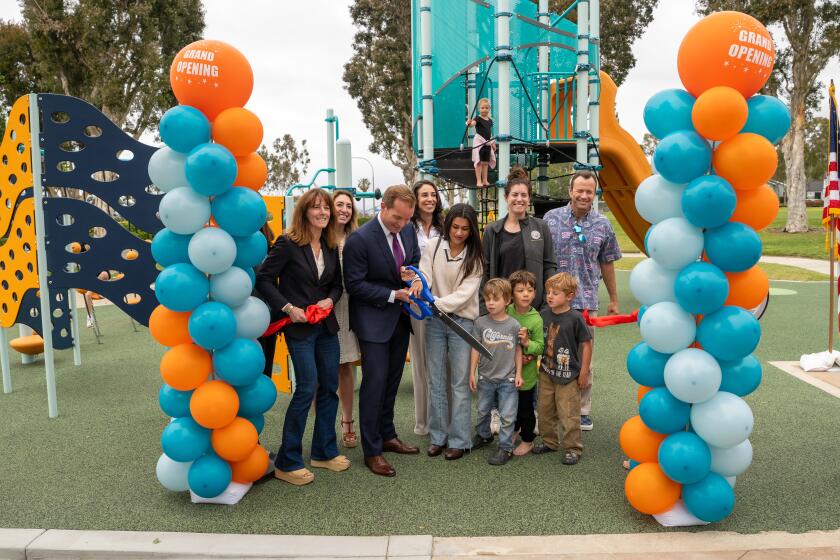The God Squad: Happy Hanukkah for Jews and non-Jews
- Share via
In the spirit of my life work with Fr. Tom Hartman (who sends his love to all even as he enters the deepest fog of Parkinson’s disease), I offer my annual Hanukkah greeting for people who don’t celebrate Hanukkah. Next week, I’ll send along my Christmas prayer for people who don’t celebrate Christmas.
The point of this spiritual flip-flop is to remind us that even during the holidays that most separate us, we can still find abundant and important meanings that unite us. So here’s a sense of what the Jewish holiday of Hanukkah can teach people who have no intention of kindling a menorah this week:
One family can make a big difference in the world. When the Maccabees led the revolt against the Syrian Greeks in 168 BCE, Judaism was on the ropes. The conquest and exile of the 10 tribes of the Northern Israelite Empire in 722 BCE by the Assyrians was followed by the fall of the Southern Kingdom and the destruction of the first temple in Jerusalem by the Babylonians in 586 BCE.
These catastrophes for Jews and Judaism culminated in the conquest of Israel by Alexander the Great and his Greek army in 333 BCE, which further reduced and splintered the small Jewish community that survived.
In addition to the threat of physical extermination, the Greek conquest added the danger of spiritual assimilation. Greek culture — everything from Greek sports to Greek philosophy (Aristotle was Alexander the Great’s tutor and companion on his conquests) — all had a great attraction to Jews who wanted to abandon Jewish faith and practice and assimilate into the high secular culture of Hellenism.
If there had been no Maccabean revolt, Jews and Judaism would almost certainly have died out. Judaism would have taken its place with Gnosticism as just another interesting but long-dead religion of antiquity. However, because of one single family, a successful revolt kept Judaism alive and appealing.
Just think about it. Think about just how different the history of the world would have been if Judaism had died out two centuries before the birth of Jesus. There would not have been Jewish soil in which Christianity could have taken root, and, of course, after another seven centuries, there might never have been Islam.
It’s not farfetched to think that Hanukkah was the moment when the Western world’s great faiths survived a premature death. And all this happened because one family was unwilling to give up its traditions and its faith. None of us need to be Maccabees today because there were Maccabees then. Yes, my friends, Hanukkah is about much more than dreidels and latkes. Hanukkah changed the world.
Miracles only happen to people ready to see them. Scientifically minded people go crazy when the topic is miracles. Things that violate a scientific outlook seem irrational and ignorant to many of them, and in general, I agree with them.
However, if what we mean by miracles is not a stark violation of the natural order but rather a confluence of events that offers an unpredicted and deeply needed outcome, then we can preserve our rational faculties while also celebrating the sublime intrusions into our profane world of the sacred domain of God’s hope and promise of salvation.
Miracles are surely extra-ordinary events, but they need not be anti-ordinary events. The Hanukkah miracle is like that. It’s about oil burning (a natural event) for a very long time (a miraculous event). Whether that miracle was totally natural (perhaps they found more oil) or transcendental is hidden by history. I also believe it’s irrelevant to the deepest meaning of Hanukkah — for Jews and for all people.
The point and power of miracles, as I believe in them, lies not in their ability to change the world, but in their ability to change us. When we forgive someone whom we could not forgive until that moment, it’s a miracle. When we find the will to finally let go of addictions and other destructive behaviors, it’s a miracle. When we trade in a life of selfishness for a life of service, it’s a miracle.
I lift up at this Hanukkah season all the miracles that have enabled people to discover anew the better angels of their nature. Hanukkah can miraculously change us all. The rabbis of old taught that we ought not to depend upon miracles. They never taught that we ought not to believe in miracles. Hanukkah is an opportunity to believe that things might be considerably better than they appear to us at our weakest and most despairing moments.
Happy Hanukkah to us all!
MARC GELLMAN is the senior rabbi of Temple Beth Torah in Melville, N.Y., where he has served since 1981. Send questions only to godsquadquestion@aol.com.
All the latest on Orange County from Orange County.
Get our free TimesOC newsletter.
You may occasionally receive promotional content from the Daily Pilot.



